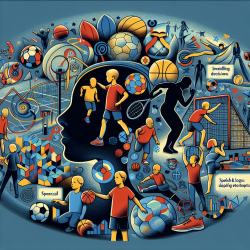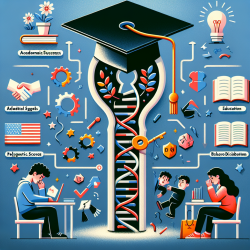Understanding the Impact of Smartphones on Students
In today's digital age, smartphones have become an integral part of our daily lives, offering numerous benefits such as connectivity and access to information. However, their excessive use, especially among children, has raised concerns about their impact on academic performance and overall well-being. A recent large-scale study in China sheds light on the intricate relationships between problematic smartphone use (PSU), mathematics achievement, teacher-student relationships, and students' subjective well-being (SWB).
The Study: Key Findings
The research involved over 20,000 fourth graders and found several critical insights:
- Direct Negative Impact: PSU directly and negatively affects students' SWB, indicating that excessive smartphone use can lead to decreased life satisfaction and emotional well-being.
- Mathematics as a Mediator: Mathematics performance partially mediates the relationship between PSU and SWB. This means that PSU can affect students' math performance, which in turn influences their well-being.
- Role of Teacher-Student Relationships: Strong teacher-student relationships can moderate the negative effects of PSU on both mathematics performance and SWB. However, the effectiveness of this moderating role diminishes as PSU increases.
Implications for Educators and Practitioners
These findings offer valuable insights for educators and practitioners working with children:
- Monitor and Regulate Smartphone Use: Encouraging responsible smartphone use can help mitigate its negative impact on academic performance and well-being.
- Enhance Teacher-Student Relationships: Building strong, supportive relationships between teachers and students can buffer against the adverse effects of PSU. This involves creating a positive classroom environment where students feel valued and supported.
- Focus on Mathematics Education: Given its mediating role, enhancing students' mathematics skills can contribute to their overall well-being. This may involve personalized learning plans and additional support for students struggling with math.
Encouraging Further Research
While this study provides significant insights, it also highlights the need for further research. Future studies could explore:
- The impact of PSU on other academic subjects and how they relate to SWB.
- The role of parental involvement and family dynamics in moderating the effects of PSU.
- Longitudinal studies to assess the long-term impact of PSU on academic and emotional outcomes.
Conclusion
This research underscores the complex interplay between technology use, academic performance, and well-being. By understanding these relationships, educators and practitioners can better support students in navigating the challenges of the digital age. For those interested in delving deeper into the original research, please follow this link: Relationships among Problematic Smartphone Use, Mathematics Achievement, Teacher–Student Relationships, and Subjective Well-Being: Results from a Large-Scale Survey in China.










